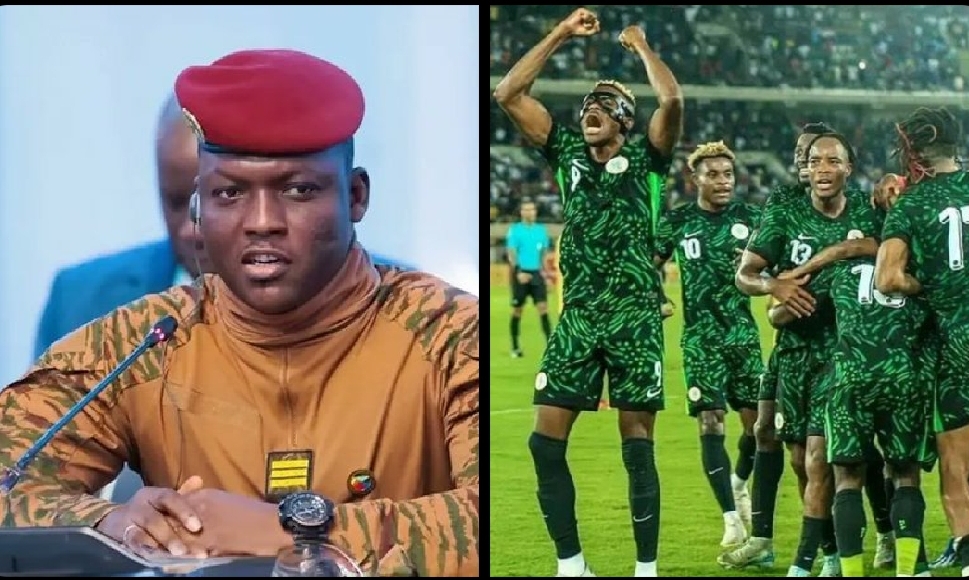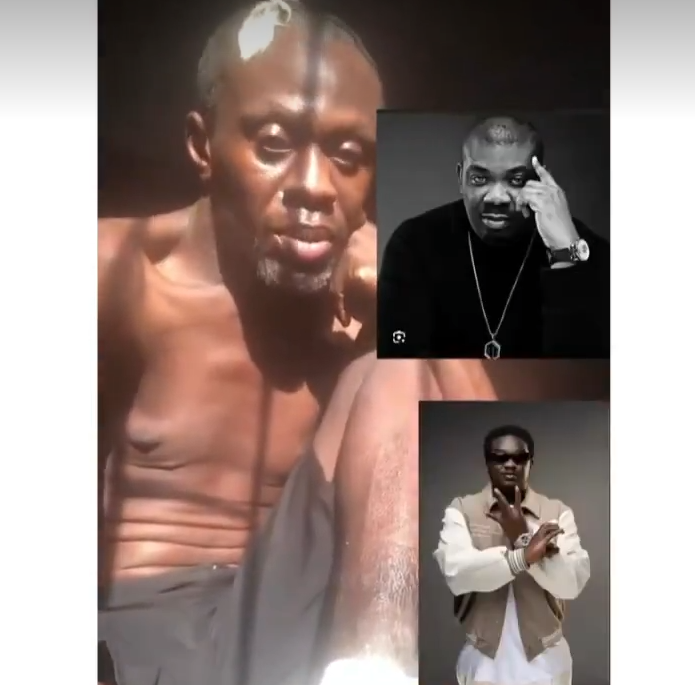
Nigeria Clinches 2026 World Cup Playoff Spot over Burkina Faso as Traoré Demands CAF Explanation

Nigeria’s Super Eagles have secured their place in the 2026 FIFA World Cup playoffs after edging Burkina Faso on goal difference in one of the most dramatic qualification endings in recent African football history.
The deciding moment came on a high-octane Sunday night as Nigeria thrashed Benin Republic 4–0 in Lagos, a result that outpaced Burkina Faso’s 3–1 win over Ethiopia to leave both nations tied on 13 points. However, Nigeria’s superior +4 goal difference pushed them past their West African rivals and into the next stage, sparking jubilation across the country and outrage in Ouagadougou.
The final whistle barely faded when Burkina Faso’s military leader and interim president, Captain Ibrahim Traoré, publicly questioned the Confederation of African Football (CAF) over what he called “unclear and inconsistent” tiebreaker rules. Speaking from the presidential palace, Traoré demanded that both CAF and the Burkinabè Football Federation explain how Nigeria’s goal difference advantage was applied, despite what he described as “identical head-to-head statistics.” His remarks, carried across West African media and trending widely on X (formerly Twitter), ignited a digital firestorm, with Nigerian fans quick to defend their team’s legitimate win.
“Go and score your own goals next time!” one fan replied under a viral post that had already amassed over 146,000 views within hours. Another quipped, “This is not a coup — this is football!” referencing Traoré’s 2022 military takeover that made him Africa’s youngest head of state. The banter underscored not just football rivalry but the intersection of politics and pride that defines West African sport.
Inside Nigeria, the victory was celebrated as redemption for months of underwhelming performances and internal criticism. After a shaky qualifying start, the Super Eagles’ commanding win over Benin restored faith in a squad that had been under fire for inconsistency and lack of attacking spark. Victor Osimhen led the charge with a brace, while Ademola Lookman and Samuel Chukwueze sealed the rout to give Nigeria the cushion they desperately needed. The result sent Lagos into frenzy, with chants of “Naija to the World Cup!” echoing through social media timelines and the city’s buzzing streets.
But amid the celebrations, political undertones brewed across the border. Traoré’s reaction wasn’t merely about football; it reflected a growing pattern of nationalist assertiveness in Burkina Faso’s leadership since the 2022 coup. Analysts in Ouagadougou described the president’s comments as “a symbolic protest” aimed at rallying domestic support and positioning himself as a voice for fairness in African affairs. “Traoré knows the power of football in shaping national sentiment,” said sports journalist Alassane Ouedraogo. “Questioning CAF’s decision gives him political mileage at home, even if the outcome won’t change.”
CAF, for its part, has yet to release an official response, though its standard qualification rules clearly prioritize goal difference when teams are level on points — a criterion that leaves Nigeria’s progression beyond dispute. Still, the uproar reflects the emotional weight of football in West Africa, where national pride often blurs with political identity.
For Nigeria, the focus now shifts to the playoff stage — a high-stakes battle that will determine the final African representatives for the 2026 World Cup in the U.S., Canada, and Mexico. The Super Eagles’ coach emphasized discipline and preparation in his post-match remarks, warning against complacency despite the euphoria. “We’ve crossed a hurdle, but the real fight is ahead,” he said. “This team belongs on the world stage, and we’ll prove that.”
Across social media, fans hailed the Super Eagles as “the kings of Group C,” while memes flooded X mocking Burkina Faso’s complaints. Yet even within the humor, there was acknowledgment of the fierce competition that defined the group. Burkina Faso’s campaign, led by star forward Bertrand Traoré, had been strong, and many neutral observers felt sympathy for their near miss.
Still, in the end, numbers don’t lie — and Nigeria’s +4 edge was the cold, hard math that sealed their path. As the nation celebrates and preparations begin for the playoff rounds, the moment stands as both a sporting triumph and a reminder of the delicate line between football glory and political theater in African sport.
Nigeria moves forward. Burkina Faso fumes. And the rest of the continent watches, as the race to North America 2026 enters its final, electrifying stretch.


